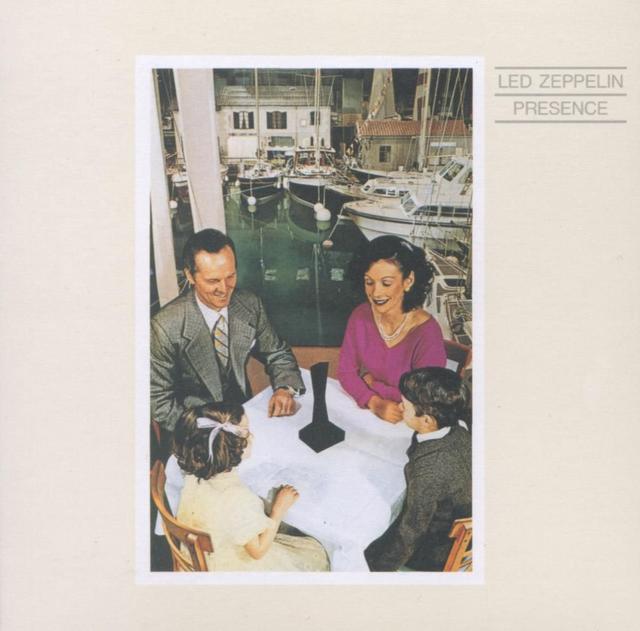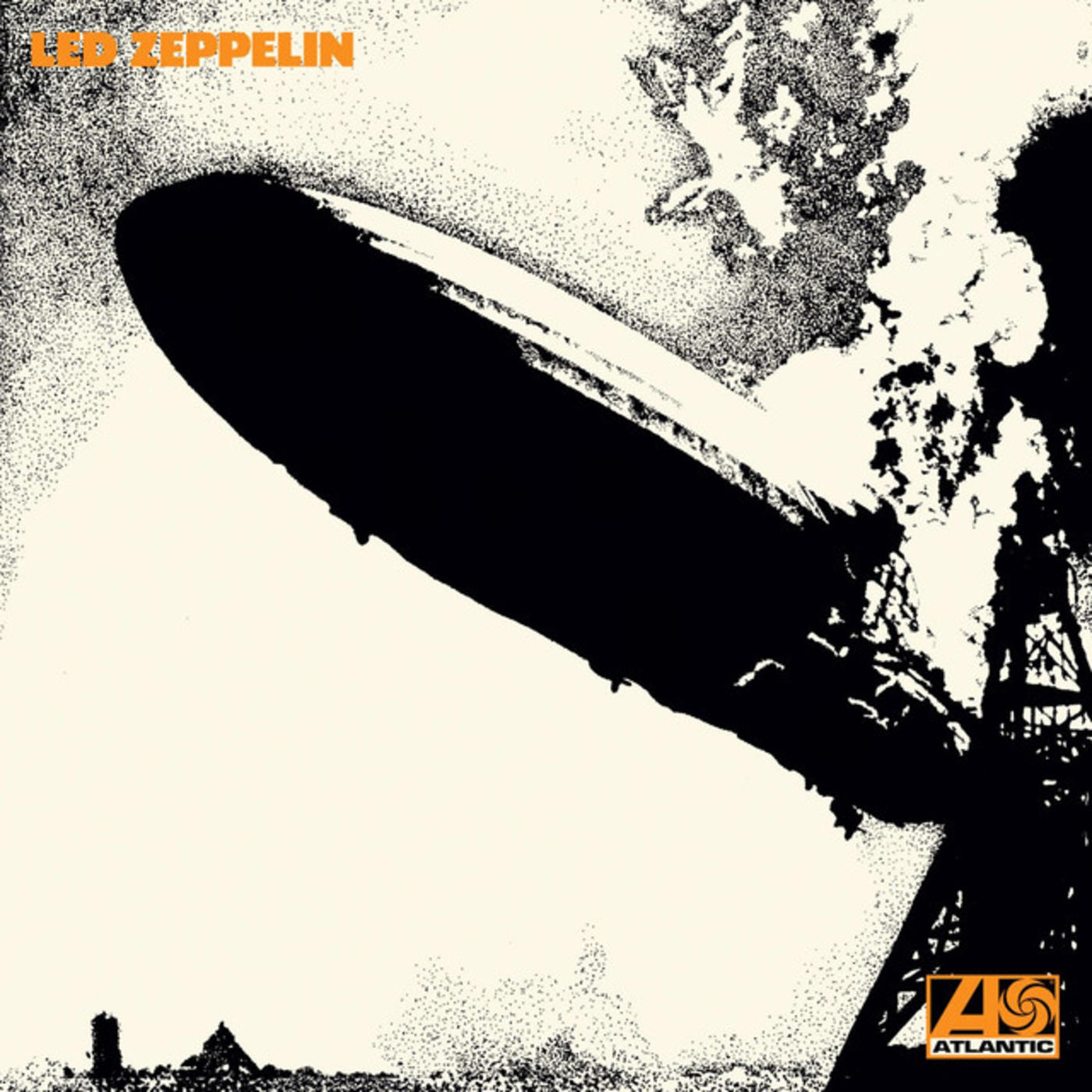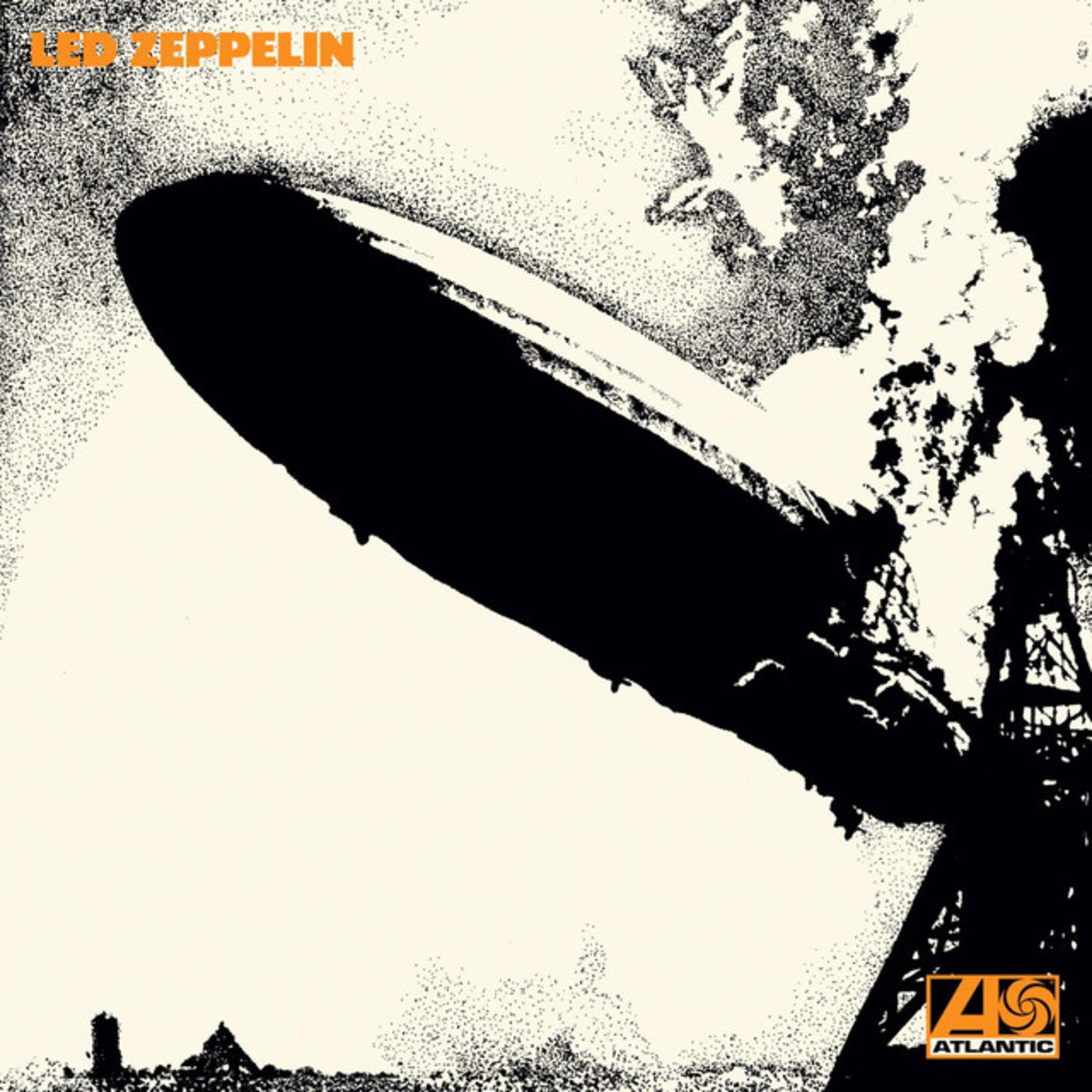UNDERRATED: Led Zeppelin, PRESENCE

For a band notorious for taking its own sweet time making records, Led Zeppelin made the Presence album in a relative flash. It was just another challenge for the biggest band in rock circa 1976. The outfit was still reeling from singer Robert Plant's terrible car crash in August of that year, which left him with a broken leg and elbow. It would cause the band to cancel the end of the Physical Graffiti tour, and add more stress to the Presence recording sessions. Time was limited, as their booked studio time would rub right up against the Rolling Stones, who were set to record Black and Blue. Jimmy Page ultimately begged Mick Jagger and company for a few more days to complete the project.
With a bitter Plant confined to a wheelchair, drummer John Bonham up to his "Bonzo" ways (like punching Kim Fowley associate Michelle Myers in the face for looking at him at the Rainbow one night), and John Paul Jones increasingly bored ("I learned all about baseball during that period, as the World Series was on and there was not much else to do but watch it," Jones once said), the making of Presence relied heavily on Jimmy Page's creative hand.
Released on March 31, 1976, the album debuted at #2 on the Billboard 200. Presence quickly rose to #1 for the week of May 1, 1976, holding the top spot for two straight weeks. Still, critics were quick to write the record off as a failure, and it did pull into the gate as the poorest-selling of Led Zep's studio LPs. The record's success was further hampered by the splashy release of double-live album, The Song Remains the Same, just six months after the debut of Presence.
"There was a very live feeling to the music. Some numbers were made up in the studio," Page revealed in 2015. "'For Your Life' is one that I came up with there and then. It was immediately one Robert wanted to do, and again, as I say, he was just singing his heart out. 'Achilles Last Stand' was a number that we had rehearsed in LA. What we'd rehearsed was the running order of the song, the arrangement if you like. And I had all these ideas for the guitar overdubs, so when we got to Musicland (studios in Munich) to record the number -- we probably recorded more than one number on that day, two or three songs -- afterward the others went out to a club. That night I just set about putting everything that I'd heard, envisaged in my head, I just set about laying it down. It was all done in the space of one night. The guys went off having done the track and when they came in the next day I said, 'Well, listen to this!' And there was this great guitar orchestra. They went, 'Wow!' It was pretty astonishing. I'm only saying that, not to blow my own trumpet about the guitar overdubs being done in one night, but more as an example of just how intense it was, and how it was almost channeling. It was channeling. And it was channeling at that point from everybody. The drive and focus at the time we were making Presence was just really extreme."
Four reasons why the "extreme" Presence is a much better album than many of its critics like to admit.
1. "Achilles' Last Stand"
The album's epic ten-and-a-half-minute opening track lives up to its name with an urgency and desperation not heard on many Led Zeppelin tracks. Plant wails from his wheelchair as the band rages through tempo changes and a blistering guitar solo from Jimmy Page.
2. "Nobody's Fault But Mine
A sly adaptation of of Blind Willie Johnson's "It's Nobody Fault But Mine." the group revived some of that Physical Graffiti magic with this phase-heavy stop-start-again electric romp.
3. "Candy Store Rock"
With such a dark pall over Presence, "Candy Store Rock" provided a moment of lightness. Written within about an hour, the group knocked out the throwback rockabilly styled song at Germany's Musicland Studios.
4. "The Object"
Artwork and presentation were always a vital part of every Led Zeppelin album release. It was important to the band that any given record's packaging was as engaging as the music inside. Designers Hipgnosis would create "The Object" that was at the center of the Presence campaign. The idea, according to Hipgnosis co-founder Storm Thorgerson, was that the obelisk represented the power of Led Zeppelin, which was "so powerful, they didn't need to be there." The band's Swan Song label even sent out promotional copies of "The Object," including one that ended up on TV's Pawn Stars.


